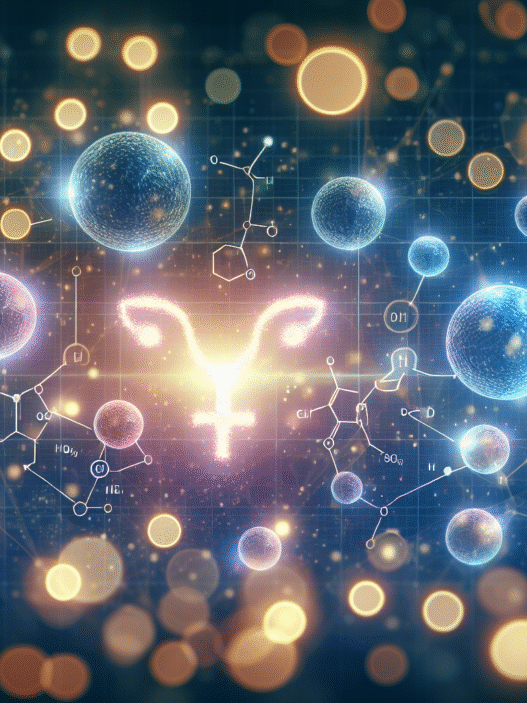Understanding N-Acetyl Cysteine (NAC)
Introduction to NAC
N-acetyl cysteine (NAC) is a derivative of the amino acid cysteine and plays a vital role in various bodily functions. It acts as a powerful antioxidant, helping to reduce oxidative stress by increasing levels of glutathione, a critical antioxidant found in cells. While NAC is well-known for its benefits, it is essential to be aware of potential side effects as well. It’s worth noting that NAC has a pungent smell, often compared to rotten eggs, which can lead to nausea and vomiting when taken orally. To mitigate this, NAC is frequently diluted in diet sodas or provided in effervescent tablets source.
NAC is commonly used for its therapeutic properties, particularly for liver health, detoxification, and respiratory conditions. People concerned about liver function or looking for longevity-enhancing supplements often consider it as an option. For more information on its applications, refer to our article on what is NAC N-acetyl cysteine used for?.
Benefits of NAC
NAC offers numerous benefits that make it appealing for a variety of health concerns. Here are some key advantages:
| Benefit | Description |
|---|---|
| Antioxidant Properties | NAC raises glutathione levels, which helps combat oxidative stress and improves overall health. |
| Liver Support | It is known for its role in liver detoxification and may help reverse fatty liver disease source. |
| Respiratory Health | NAC can help reduce mucus in conditions such as chronic obstructive pulmonary disease (COPD). It may also aid those who suffer from bronchitis and asthma. |
| Mental Health Benefits | Some studies suggest that NAC may help manage symptoms of anxiety and depression source. |
Despite these benefits, users should be cautious as NAC supplementation can lead to side effects like nausea, vomiting, constipation, and diarrhea. Additionally, inhalation of NAC solutions may lead to other symptoms like mouth swelling, runny nose, and drowsiness source. For detailed information on how to safely use NAC, explore our section on who should avoid NAC and its potential interactions with other substances.
Common Side Effects of NAC
N-Acetyl Cysteine (NAC) is a supplement known for its numerous health benefits. However, it may also cause side effects, primarily in individuals concerned about liver health, detoxification, and longevity. Here are some of the common side effects associated with NAC.
Gastrointestinal Symptoms
One of the most frequently reported side effects of NAC is gastrointestinal discomfort. Individuals may experience nausea, vomiting, diarrhea, and constipation. In some cases, adverse reactions can occur, particularly with high doses or inhalation of NAC solutions, which might lead to symptoms like swelling in the mouth, runny nose, drowsiness, and chest tightness.
The following table summarizes the gastrointestinal symptoms associated with NAC:
| Symptom | Occurrence Rate (%) |
|---|---|
| Nausea | Up to 23% |
| Vomiting | Common |
| Diarrhea | Common |
| Constipation | Less frequent |
It is advisable that anyone considering NAC consult a healthcare professional beforehand, especially if they find the smell of the supplement unpleasant, which may make consumption difficult (Healthline, WebMD).
Skin Reactions
Some users of NAC may experience skin reactions, which can include rashes, hives, or unusual tiredness. Although these are not particularly common, they should be reported to a healthcare provider immediately if they occur. Other adverse events linked to NAC include flushing and blurred vision.
The following table outlines the potential skin-related side effects:
| Skin Reaction | Description |
|---|---|
| Rash | Skin irritation, possible itching |
| Hives | Raised, itchy welts on the skin |
| Unusual tiredness | Increased fatigue level |
Patients using inhaled NAC for respiratory conditions may also report throat irritation or persistent coughing as a result.
Respiratory Effects
Respiratory symptoms can also arise with the use of NAC, particularly when administered through inhalation. Common effects include cough, wheezing, or shortness of breath. For those inhaling NAC, additional issues like chest tightness and respiratory distress may present.
Here’s a summary of respiratory effects linked to NAC:
| Respiratory Effect | Description |
|---|---|
| Cough | Commonly reported |
| Wheezing | Difficulty breathing |
| Stridor | High-pitched wheezing sound |
| Shortness of breath | Difficulty taking in breath |
Caution is advised when using NAC in conjunction with medications that lower blood pressure, as excessive drops in blood pressure can occur (Drugs.com, PMC).
Being aware of these side effects is important for anyone considering the use of NAC, especially those who may have existing health conditions or are taking other medications. For further information on the uses and benefits of NAC, refer to our article on what is NAC N-acetyl cysteine used for?.
Rare Side Effects of NAC
While N-Acetyl Cysteine (NAC) is generally considered safe, there are rare side effects that some individuals may experience. Understanding these potential adverse effects is crucial for individuals concerned about their health, especially regarding liver health and detoxification.
Anaphylactoid Reactions
Anaphylactoid reactions are rare, but they can occur with NAC. Symptoms associated with these reactions may include:
- Airway obstruction (bronchospasm)
- Angioedema
- Dyspnea (difficulty breathing)
- Hypotension (low blood pressure)
- Shock
- Tachycardia (rapid heartbeat)
- Urticaria (hives)
- Injection site reactions
It is essential for individuals to be aware of these symptoms, as they can indicate a serious reaction that requires immediate medical attention (Drugs.com).
Nervous System Effects
Nervous system effects can occur as a result of taking NAC. This may include symptoms such as dizziness, confusion, or headaches. Although rare, these effects can impact an individual’s daily functioning and should be monitored closely (Drugs.com).
Allergic Reactions
Allergic reactions to NAC can be serious and may manifest with symptoms such as:
- Angioedema
- Blurred vision
- Confusion
- Difficulty breathing or swallowing
- Fever
- Rash or hives
- Swelling
- Nausea
- Sweating
Individuals experiencing these symptoms should seek medical help immediately, as they can escalate quickly and may require urgent treatment (Mayo Clinic). Recognizing these rare side effects is vital for those using NAC supplements, especially for those considering long-term use for liver health and detoxification. Always consult with a healthcare professional before starting any new supplement regimen to ensure safety and efficacy.
Interactions with Medications
Understanding the interactions between N-Acetyl Cysteine (NAC) and various medications is crucial for individuals considering its use for liver health and detoxification. This section outlines common drug interactions, disease interactions, and the risks of using NAC in combination with other medications.
Drug Interactions
NAC may interact with certain medications, potentially affecting their effectiveness. According to WebMD, specific drugs known to interact with NAC include:
| Medication | Interaction Level |
|---|---|
| Oxytetracycline | Minor |
| Tetracycline | Minor |
| Trypsin | Minor |
| Nitroglycerin | Moderate |
Taking NAC with nitroglycerin may increase its effects, leading to enhanced side effects such as headache, dizziness, and lightheadedness. It’s essential to consult with a healthcare provider before combining NAC with these medications. Furthermore, combining activated charcoal with NAC may reduce the effectiveness of charcoal in preventing poisoning.
Disease Interactions
There are several disease interactions with NAC that warrant caution. Individuals who experience bleeding easily, have cystinuria, or regularly take nitroglycerin should avoid NAC due to potential complications. Below are the disease interactions to be aware of:
| Condition | Recommendation |
|---|---|
| Cystinuria | Avoid NAC |
| Bleeding Disorders | Avoid NAC |
| Hepatic Issues | Consult a healthcare provider |
| Cardiovascular Issues | Consult a healthcare provider |
Combined Medication Risks
When NAC is used alongside other medications, it can increase the risk of adverse effects. The interactions can either enhance the effects of a medication or diminish its efficacy. This necessitates a careful approach when initiating NAC, especially for those on multiple medications or with underlying health issues. It is always wise to have an open discussion with a healthcare professional regarding any potential drug interactions and to monitor for any unexpected side effects.
Staying informed about these interactions ensures safe use and maximizes the potential benefits of NAC for health and wellness.
Safety Precautions with NAC
Ensuring safe use of N-Acetyl Cysteine (NAC) is essential for individuals who seek its benefits, especially those concerned about liver health and detoxification. Here are important safety precautions.
Safe Usage Guidelines
NAC is generally recognized as safe for adults when used as prescribed. However, individuals should always start with the recommended dosage and consult with a healthcare professional before initiating their regimen. High doses of NAC may lead to side effects, including nausea, vomiting, diarrhea, and constipation. As different formulations may vary in potency, adhering to what is NAC N-Acetyl Cysteine used for? can help guide appropriate use.
| Common Side Effects | Possible Symptoms |
|---|---|
| Gastrointestinal Issues | Nausea, Vomiting |
| Diarrhea, Constipation | |
| Respiratory Symptoms | Swelling in Mouth |
| Chest Tightness |
Who Should Avoid NAC
Certain individuals should avoid NAC supplementation, particularly those with specific health conditions. People with bleeding disorders or those taking blood-thinning medications should refrain from using NAC, as it may slow blood clotting and potentially increase the risk of bleeding in the esophagus and stomach, especially if severe or ongoing vomiting occurs (Mayo Clinic). Before starting NAC, individuals should check with their healthcare provider regarding any contraindications. More details can be found in our article on who should not take N-Acetyl Cysteine?.
Reporting Any Adverse Effects
Should any side effects arise while taking NAC, individuals are encouraged to report them to their healthcare provider. Immediate medical attention may be warranted for severe or unusual reactions, such as significant gastrointestinal distress or respiratory symptoms. NAC can cause unwanted side effects, which may prompt professional evaluation (Mayo Clinic). Keeping an updated log of any adverse effects while using supplements can aid in better understanding individual reactions.
For best practices and further insights into how NAC may impact health, including potential benefits and risks, explore our section on NAC’s interaction with other medications and other relevant articles.
Managing NAC Side Effects
Minimizing Side Effects
To effectively manage the side effects associated with N-Acetyl Cysteine (NAC), individuals can take several proactive steps. Adjusting the dosage may help reduce gastrointestinal symptoms such as nausea, vomiting, diarrhea, and constipation Healthline. Starting with a lower dose and gradually increasing it may allow the body to adjust. It’s also advisable to take NAC with food, which can help mitigate stomach upset.
If the pungent odor of NAC, reminiscent of rotten eggs due to its sulfur content, causes discomfort or nausea, it can be beneficial to consume it with flavored liquids or effervescent tablets designed to mask the smell PMC.
| Recommended Practices | Description |
|---|---|
| Start with a Low Dose | Gradual increase may help tolerance |
| Take with Food | Can reduce stomach-related side effects |
| Use Flavored Forms | Mask unpleasant odor to reduce nausea |
Consulting a Healthcare Professional
Before starting NAC or adjusting its dosage, individuals should consult a healthcare professional, especially if they have pre-existing conditions or are taking other medications. A healthcare provider can offer guidance tailored to individual health needs and monitor for side effects. They can also help determine safe usage and whether NAC is appropriate based on personal medical history who should not take n-acetyl cysteine?.
Monitoring for interactions with other medications is crucial as well. A doctor can provide valuable insight into any potential risks or complications related to concomitant regimens.
Monitoring for Uncommon Effects
While common side effects of NAC include gastrointestinal discomfort, more serious reactions can occur. Anaphylactoid symptoms such as airway obstruction, angioedema, and respiratory issues may develop, although these are rare Drugs.com. Individuals taking NAC should remain vigilant for any unusual reactions, particularly if they experience symptoms like difficulty breathing, swelling in the mouth, or hives.
Prompt reporting of any adverse effects to a healthcare provider can ensure timely intervention and help in managing any complications. By staying aware and proactive, individuals concerned about liver health or detoxification can optimize their use of NAC while minimizing negative outcomes.
Keep in mind, everyone may react differently to NAC, and individual health circumstances should always guide supplement usage. For more information about NAC’s uses and effects, visit our article on what is nac n-acetyl cysteine used for?.





















